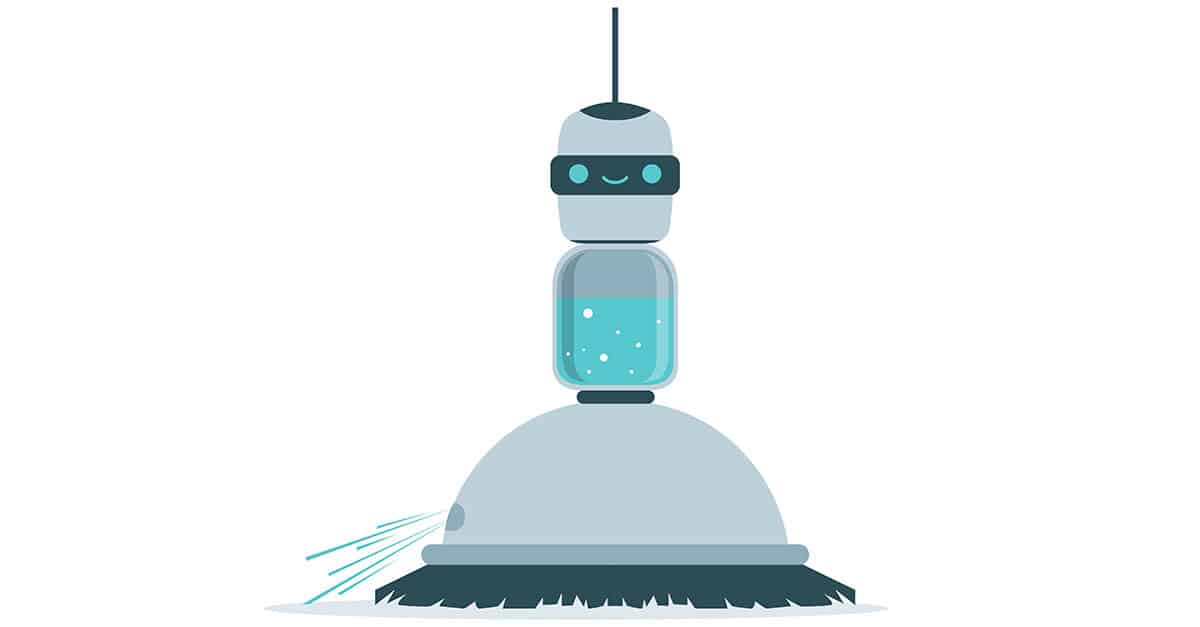
The biggest trends in the commercial cleaning sector
It is a pivotal moment for the cleaning industry.
The COVID-19 pandemic has thrown into sharp relief the importance of cleaning for both the UK economy and the health of the nation. We have come to realise how much we rely on the supposedly “humble cleaner”, when the truth is it can be a technical job that has seen major technological innovation over the past 12 months. The sector now has a significant opportunity to capitalise on its high profile.
Here are three big trends that are representative of the changing direction of the cleaning sector right now.
1. Cleaning as a career
Under much discussion is the concept of cleaning as a career-changing perception from a temporary, casual or even ‘dead end’ job, to a respectable career with a clear path to progression.
In his role as the current Master of the Worshipful Company of Environmental Cleaners (WCEC), John Shonfield is championing apprenticeships for the cleaning sector, similar to those that have been introduced into domiciliary care.
A formal apprenticeship is much more likely to attract younger people into the sector, and keep hold of them with a job that provides a sense of purpose and satisfaction. It would also go some way to fill the gap left behind by European workers.
The WCEC is also due to launch its inclusive industry-wide Chartered Practitioners Register in 2021, to clearly demonstrate the industry’s highly-skilled, professional workforce.
2. Recognition and professionalisation
A big breakthrough for the cleaning industry came with the new All-Party Parliamentary Group (APPG). Formed at the start of 2021, and backed by the British Cleaning Council (BCC), the group will champion the interests of the industry in parliament.
Amongst the aims of the APPG are:
- recognition of all cleaning and hygiene staff as essential workers
- a universal training accreditation for cleaning and hygiene
- promotion of the real Living Wage
- staff wellbeing and mental health awareness
- full compliance with the Modern Slavery Act, for both the industry and its supply chain
- commitment to accelerate progress towards sustainability and environmental targets, in particular the UK government’s 2050 zero emissions target
- recognition of the important role of regulated cleaning and disinfection products, particularly in relation to EU regulations
BCC Chairman Paul Thrupp said of the group: “The APPG will help ensure policy-makers are aware of the vital work we do and ensure the sector’s voice is heard in decisions that affect it. An industry of such large scale and huge importance as ours needs to have this kind of representation in Parliament.” (Source: FMJ)
3. Technological innovation
Much like the developments we have seen in the care sector, the cleaning industry has experienced its own quiet technological revolution since the start of 2020.
It was a cobot called Leobot that won the Amsterdam Innovation Award 2020 at Interclean last November, seeing off 86 other innovations. Contrary to popular belief, cobots (collaborative robots) are designed to support the human workforce, not replace it. The cobot can take on manual, repetitive or dangerous tasks, freeing up cleaning operatives to focus on more specialised and skilled work.
And of course, we’ve seen a huge step forward in technologies relating to sanitisation – from the now-widespread use of fogging machines to real-time sensor-based monitoring of cleaning supplies, to touch-free soap and hand-sanitisers.
As these three trends demonstrate, the UK cleaning industry is poised for a radical shift, as it becomes the subject of much overdue focus and recognition. It has had an essential role to play during the COVID pandemic, and it will continue to have an even more critical role, as it helps us to re-emerge into society, safely and with reassurance
Find out more about Unique IQ’s cleaning sector software.